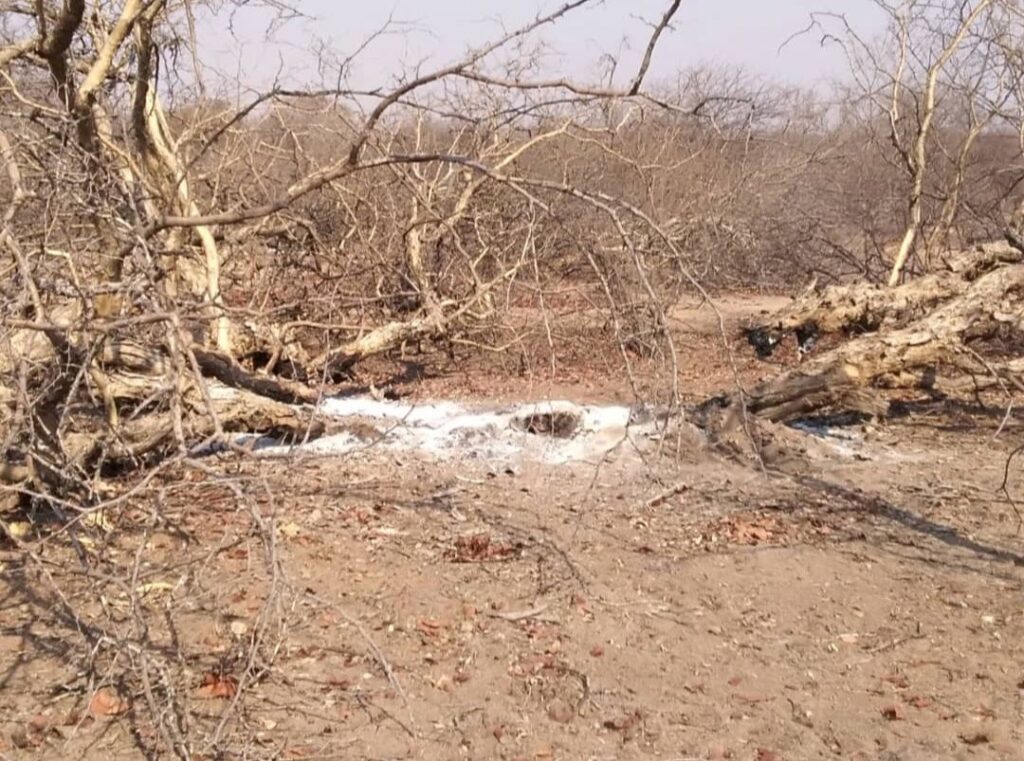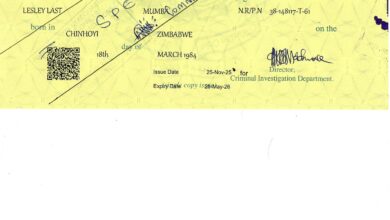Deforestation, poaching surge in Gwanda amid conservation concerns

Milton Mashasha
The rampant cutting down of trees in Gwanda, Matabeleland South, has raised alarm as residents clear land for farming and domestic use, threatening local wildlife and ecosystems.
Conservationists are calling for immediate action to curb deforestation and poaching to preserve the region’s natural resources and wildlife.
Villagers have increasingly turned to clearing forests for agriculture, further exacerbating the problem. This has not only led to the destruction of vegetation but also driven wild animals away, many of which are being poached.
Life Mabanga, a businessman based in Botswana and originally from Ward 12 under Chief Ketso Mathe, expressed concern about the environmental damage caused by uncontrolled deforestation.
“What’s happening is unacceptable. While we lack resources like fencing for our fields, it doesn’t justify unnecessary deforestation. There are areas that were previously used for farming, and instead of destroying virgin land, we should use those and work to replenish the soil,” Mabanga said.
He further criticized the use of large trees for brick burning in makeshift kilns. “Instead of cutting down healthy trees, people should use fallen branches or dry logs. It’s devastating to see our forests destroyed for purposes that could easily be achieved using alternative resources,” he added.
Mabanga drew a comparison with Botswana’s indigenous Bushmen, who, despite living in the wild, have managed to conserve wildlife through sustainable practices. “They depend on animals for survival but don’t engage in rampant poaching. We, on the other hand, are destroying everything and driving wildlife away. What will our future generations inherit if we continue on this path?” he lamented.
Mike Ndlovu, a resident of Ntalale village in Ward 11, echoed Mabanga’s concerns, criticizing those responsible for unnecessary deforestation and poaching.
“It’s unfortunate that there’s no regard for the environment. Trees that serve as community markers and symbols are being cut down without any thought. We’re disrupting the ecosystem and inviting disaster, including hunger and climate change,” Ndlovu said.
Both Mabanga and Ndlovu emphasized the importance of environmental conservation and urged the community to fight against the indiscriminate cutting of trees and poaching.
“We need to act now to protect our environment. Trees are life, and by cutting them down unnecessarily, we’re destroying our own future,” Ndlovu concluded.
According to Global Forest Watch, from 2002 to 2023, Zimbabwe lost 990 ha of humid primary forest, making up 0.43% of its total tree cover loss in the same time period. Total area of humid primary forest in Zimbabwe decreased by13% in this time period.





